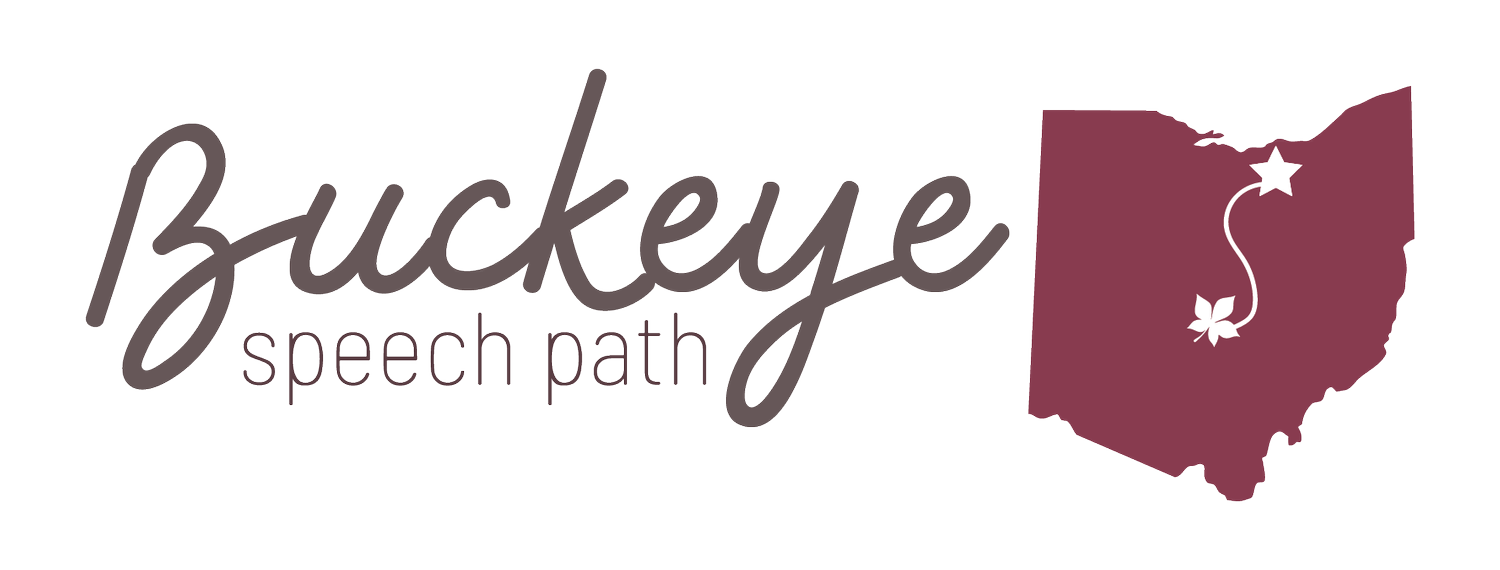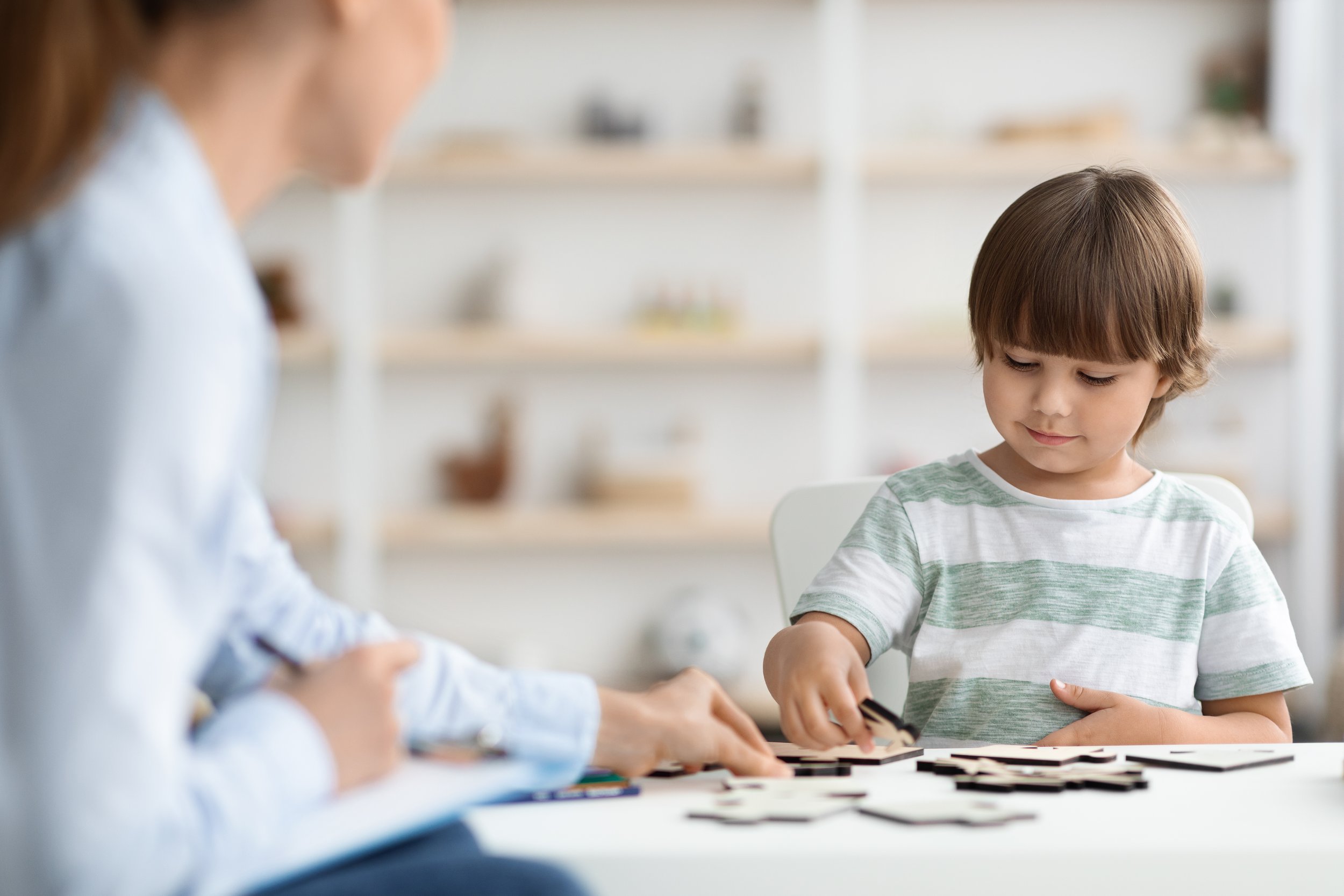My journey with Childhood Apraxia of Speech
“His speech will come around. Just wait and see.”
“Boys always talk later than girls.”
“My uncle’s friend’s cousin’s child didn’t talk until he was 4 and he’s fine now.”
If your child has any type of speech delay, I am pretty confident you have heard some of these same phrases. But as a Speech-Language Pathologist (SLP) who is also a Mom, I knew otherwise. My son began to show gross motor delays around 9-12 months of age and delayed speech around a year old. This started my journey as a therapy Mom, who also happens to be a SLP.
My son saw his pediatrician at his 9 month checkup where he recommended we see a physical therapist and also contact Help Me Grow (free early intervention services offered in each county!). Around this time, I also started to notice my son was still very quiet, did not babble, and had difficulty eating anything other than puree solids. While I had been an SLP for 5+years at the time, I only worked with adults in the medical field, so pediatric speech therapy was not my niche. At 18 months, we started to see a speech therapist in the outpatient setting as well as with Help Me Grow. I specifically searched for an SLP who was knowledgeable about swallowing, oral motor development, and apraxia, as that was the road I suspected we were heading. The primary skills I noticed were that he was not imitating any pre-speech movements (blow kisses, blow bubbles, etc) or really making any vocalizations. Then, when he did start imitating and vocalizing, there came the vowel errors, inconsistent errors, and voicing errors. These are common signs of Childhood Apraxia of Speech (CAS), which is a label used for a specific type of speech sound disorder in which the planning and/or programming of the movements to produce speech is inefficient. This means that although a child with CAS may know what they want to say, their mouth may not move the way it needs to in order to say words clearly.
Now mind you, my experience with CAS entailed one chapter in my Motor Speech Disorders class in graduate school. I had treated adults with acquired apraxia after a stroke/head injury but never a child. And here I was, the Mom of a little boy with suspected CAS. I am very thankful for my baseline knowledge as a speech therapist as I think it helped me detect his delays earlier than maybe someone else would. I was able to teach him basic sign language that I knew, we practiced (and continue to practice A LOT at home), and I knew the importance of introducing AAC (augmentative alternative communication) early on. All parents feel responsible for their child’s happiness, safety, and overall well being. But I felt an extreme and honestly heavy responsibility to get my son the services that I knew he needed and for him to make progress because - I am an SLP, I should be able to help more than anyone, right?!
I started teaching him sign language around one year and he became really skilled in this area. Even to this day, he still likes to do the ASL alphabet! He was so animated that he would use gestures, signs, facial expressions to get a lot of his wants/needs met. But as he got older and we got closer to going to preschool, I wanted him to have access to more robust communication. He saw an SLP who specialized in AAC and started using a communication device at age two and took it with him to preschool at age three. So again, I looked for a therapist who specialized in the area of intervention we needed - I continued to advocate for him.
He began getting more and more verbal in the summer of 2023 and once again, I sought out a therapist who I knew had special training in the area of CAS. He continues to receive therapy at school and in the outpatient setting and has made tremendous progress - but it is still a journey, one that can be full of highs and lows. Trust me, there are days full of happy tears (when he finally said “Mama” for the first time, when he really starts to master a new skill) along with sad tears (as I worry about how his speech will impact making friends, his future, etc.) But as I continued to attend hours and hours of speech therapy sessions, I decided that I wanted to become more educated myself in this pretty rare speech sound disorder, from a professional standpoint. I started taking continuing education courses in the area of CAS. I know that I will be the one who practices the most with him at home and so I want to be very best pediatric-SLP-Mom I could be and if I can also help by treating other children with CAS, then that is a win-win-win! I feel I can now relate more with parents/caregivers who have children with therapy needs and I feel compelled to help!
So, in a nutshell, these are the takeaways I have learned on this journey as a therapy Mom and SLP:
Find someone who specializes in the area of intervention you need.
Never stop advocating.
Celebrate the victories, no matter how big or small.
Educate yourself as well as family, health care providers, friends.
For any parent/caregiver who is interested in learning more about CAS, here are some resources to check out:
https://childapraxiatreatment.org
If you made it this far, just know, you are not alone. Reach out to Buckeye Speech Path today for a free 15 minute consultation!
Warmly,
JoBeth Metcalf
TAKE THE FIRST STEP WITH BUCKEYE SPEECH PATH:

